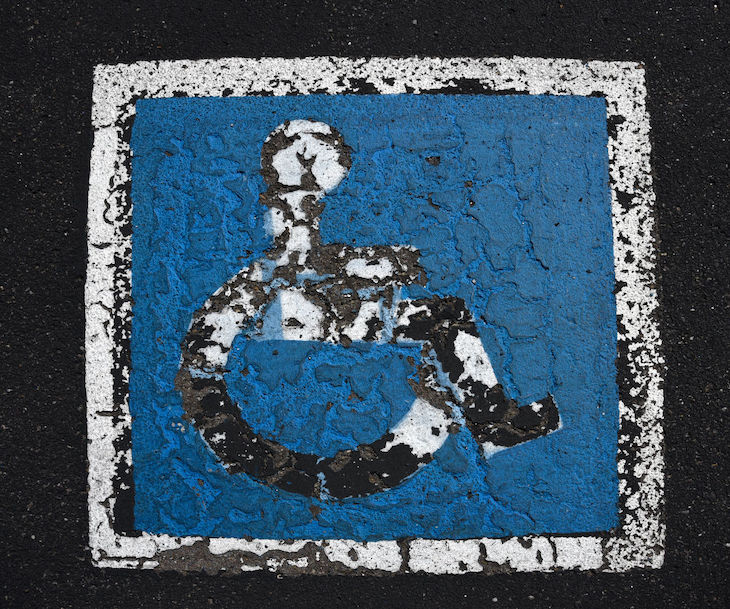Britain’s health and disability benefits bill is ballooning out of control – yet still Keir Starmer refuses to face reality. The number of people applying for these benefits has doubled since 2019 and the bill is predicted to hit £100 billion within a few years. The situation is close to breaking point – and also deeply flawed, as I found for myself when I filled out a Personal Independence Payment (PIP) form.
Much of the information online appears to be aimed at helping people without disabilities game the system
PIP is one of the fastest-growing area of welfare spending: a strong signal, perhaps, that something in the system is not working as it should. The first thing anyone going through the PIP process encounters is the vast and growing array of online resources available to applicants. There are social media forums, Reddit threads, TikTok accounts and YouTube walkthroughs with one mission: to ensure your PIP application gets approved. Some of these accounts, known as ‘sickfluencers’, have even turned benefit guidance into a full-time digital career.
I have been registered blind since the age of sixteen, so I am likely to be eligible for PIP and other disability benefits. But much of the information online appears to be aimed at helping people without disabilities game the system.
Although guides to the benefits system are undoubtedly helpful to those who need it, some of those providing advice – including charities and grassroots advocates – offer guidance well beyond what the government does. There’s a certain irony here: a system supposedly designed to be accessible now requires an entire shadow infrastructure to navigate it.
When I logged on to these online forums, posting as someone attempting the application for the first time, I received a huge response. People advised me on how to answer questions, what to omit, and how to phrase things. Some even suggested that I rehearse and practice my answers. I was told to describe my symptoms on my worst day.
It soon became clear that this is a system that demands a tactical approach. But also, critically, one that can be fudged. For those who want to maximise the benefit they receive, there are obvious opportunities to exploit.
One piece of advice stood out: ‘The appeal is the actual process. The initial rejection is just step one.’ Even when people get turned down for PIP, it seems that many simply try again. The benefits system is more than just inefficient: it is signalling failure by design.
My prompts for advice led me to another uncomfortable discovery. Alongside these informal forums, there is an entire ecosystem of commercialised guidance. Some organisations charge for access to their full documentation and advice. In other words, people can now pay to improve their odds of receiving a government handout – all of which is ultimately funded by the taxpayer.
If the state creates a system so complex that only the savvy, or the well-off, can navigate it, then is it really a surprise that those with true need are inevitably left behind?
In a welfare system groaning under the weight of unsustainable spending, the gateway to financial support can hinge on how well you can argue that you are bad with money. That is not an exaggeration. One section of the PIP form asks whether you can ‘manage money’. If you say you struggle, if you tick the right box about budgeting, understanding bills, or making financial decisions, it may help your case. What kind of warped incentive is this?
No business, of course, would operate with this level of detachment from reality. Rather than measuring genuine functional impairment or hardship, the PIP form reads like a checklist drawn up without context, nuance, or common sense. Each daily activity, from preparing food to reading signs to the ability to wash and dress is reduced to a binary scoring mechanism. The result is a process that feels arbitrary at best, and wide open to exploitation at worst. Where are the checks in place to ensure the claim I made about my condition or capabilities is real? When assessments took place in the past in person, it would have been easier to spot bogus claimants. Since the pandemic, these assessments are now over the phone. As such, it seems to be far easier to navigate the application process to get the ‘best’ result – especially when you can easily Google what answers will achieve the right points tally.
Do those checking the forms have the skills to ascertain whether the condition signed off by a doctor is serious enough to achieve a particular score? Around 1,000 new claimants apply every day for PIP, what realistic hope is there of overworked admin staff checking on every – or even a high proportion of – claims? To make matters harder, mental health conditions increasingly dominate the caseload. These are, of course, more difficult to assess and, in many cases, easier to claim against.
The Labour government originally proposed modest changes that would have required claimants to score four points in a single category to qualify for PIP. This was an attempt to prevent those with very minor conditions from making successful claims. Even that reform has now been shelved and there are few who believe the review by the DWP minister Stephen Timms is likely to reintroduce even this modest change.
Any welfare system must be seen to be both fair and to be designed, wherever possible, to incentivise people to get a job. What I found instead is a benefits system that is too open to abuse and doing far too little to provide people with what they need to secure employment. It’s clear that welfare is not working.







Comments